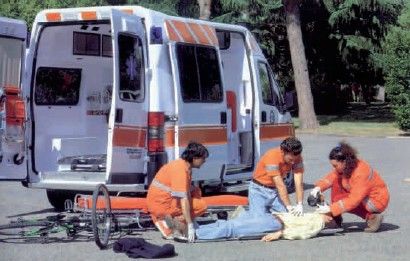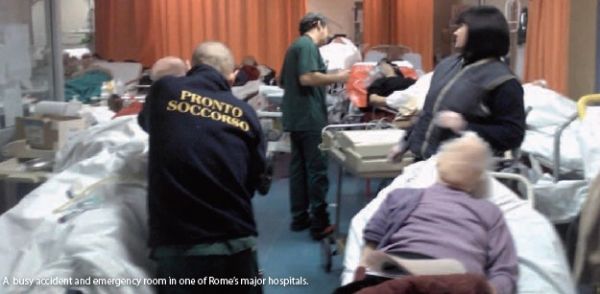A guide to the ins and outs of the Italian health system.
In the World Health Organization’s last health care ranking in 2000, Italy’s health care system was regarded as the second best in the world after France, and according to the CIA World Factbook 2004 Italy has the 10th highest life expectancy, “thanks to its good healthcare”.
Italy is host to many acclaimed medical professionals and supports a high level of medical and research excellence. Unfortunately, as is the case in many countries, spending on health care has been cut over the last couple of years resulting in decreased services, bottlenecks and increases in waiting time for visits to specialists and surgical operations, which often force people to turn to private medical care at their own expense.
The Servizio Sanitario Nazionale (SSN) or National Health Service was established in 1978 to provide Italians and foreign residents with tax-funded health care provided by a mixed public / private system. The system is governed by the ministry of health on a national level but is administered on a regional basis through the co-ordination of local health agencies, Azienda Sanitaria Locale (ASL).
Although tourists have access to all emergency services it is advisable to take out travel insurance to cover any prolonged therapy or hospital stays due to any accidents and misfortunes. All foreigners have the right to claim for damages through an Italian lawyer for any accidents they suffer while in Italy.
Foreigners who are resident in Italy with a valid residency permit (permesso di soggiorno) which is obtained at the local police station (questura – polizia di stato) are required to register with their local ASL and have the same right as Italians to national health care. Foreigners entering Italy on a study visa or a visa to carry out au-pair services, although they are not considered residents, may register with the national health system for the period of their stay, subject to the payment of a fee. The fee varies from region to region but is on average €150 a year for a student and €220 for an au-pair, payable on 1 January each year.
In order to register at your local ASL you require a copy of a valid residency permit (permesso di soggiorno), a residency certificate from the municipality (comune) in which you are resident or auto certification of where you are resident, an Italian tax code (codice fiscale) or receipt that you have requested one. In the case of families you need the residency permit (permesso di soggiorno) for each dependent.
After registration you receive a medical card (tessera sanitaria) which allows you access to national medical services. (This card is also a legal confirmation of your tax code.) At the ASL you will be given a list of available local medical practitioners from which you are required to select a family doctor (medico di famiglia). For children up to six years of age you are allocated a paediatrician. After the age of six, children may remain with the same paediatrician until the age of 16 or opt to change over to the family doctor. If you are dissatisfied with your doctor you have the right to change doctors once a year.
Although visits to your family doctor and paediatrician are free there are co-payments (pagamento ticket) for prescribed medicines. If the cost of the medication is less than €5 you pay €2.50 and if the cost exceeds €5 you pay €4. Obligatory vaccinations – namely diphtheria, tetanus, pertussis, polio virus, hepatitis B, haemophilus influenza type b, mumps, measles, rubella (German measles) – are free of charge and are administered by the staff of your local ASL. Specialist visits, scans, examinations and tests prescribed by family doctors are subject to co-payment (pagamento ticket) which, depending on the region and the nature of the visit, ranges between €36-€51. Pregnant women and the chronically ill or disabled may register with their ASL for exemption from these payments. Any operations or hospital stays recommended
by specialists are covered by the national health system.
In Italy, dental check-ups and orthodontic services are not covered by the national health service and in almost all cases the costs are borne by the patient.
Having outlined how the system is supposed to work it should be said that the national health system is more than adequate if you suffer from the occasional ‘flu, ache or pain. However, people with an ongoing need for specialist care should be aware that the waiting period for specialist visits on the national
health service can take months, and taking into consideration the price of co-payments (pagamento ticket) it is often more efficient to consult a private specialist. In which case you should consider taking out a reasonably priced international health insurance or, if allowed, remain on your home country’s national health scheme through which you may be reimbursed for medical services in Italy.
Studio Legale Annino.
www.annino-lawfirm.com






















